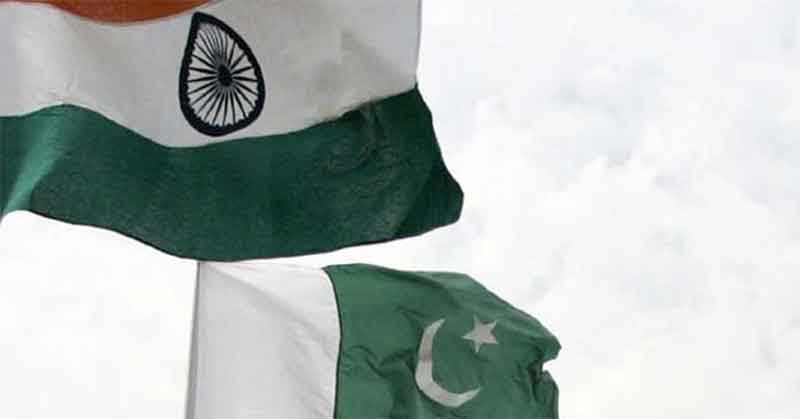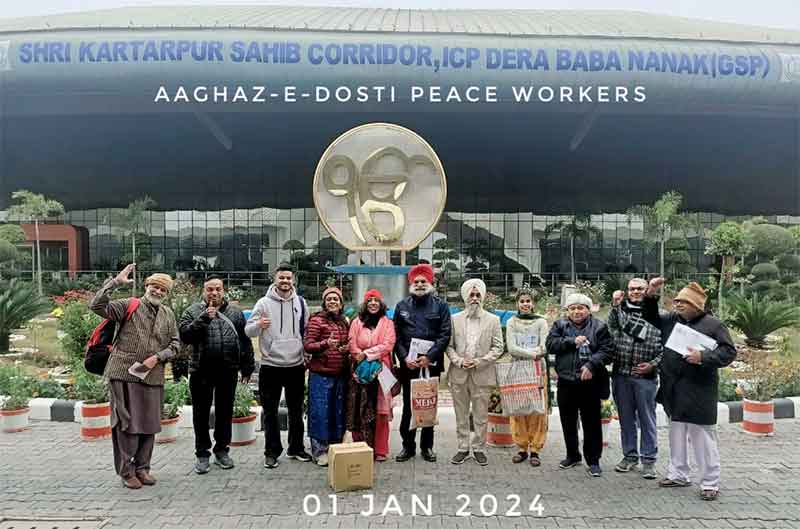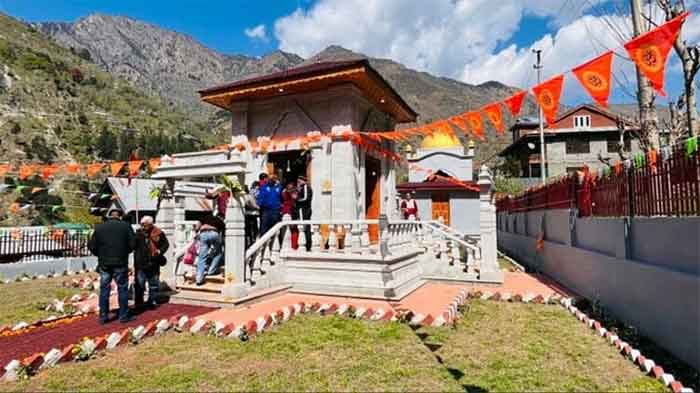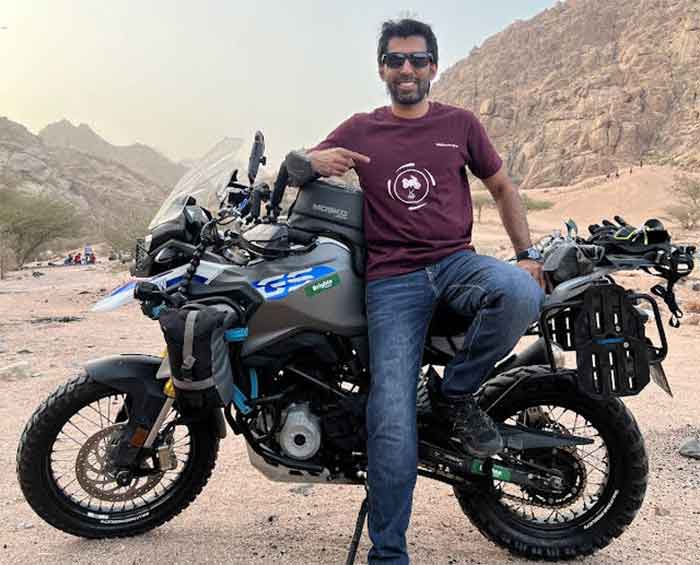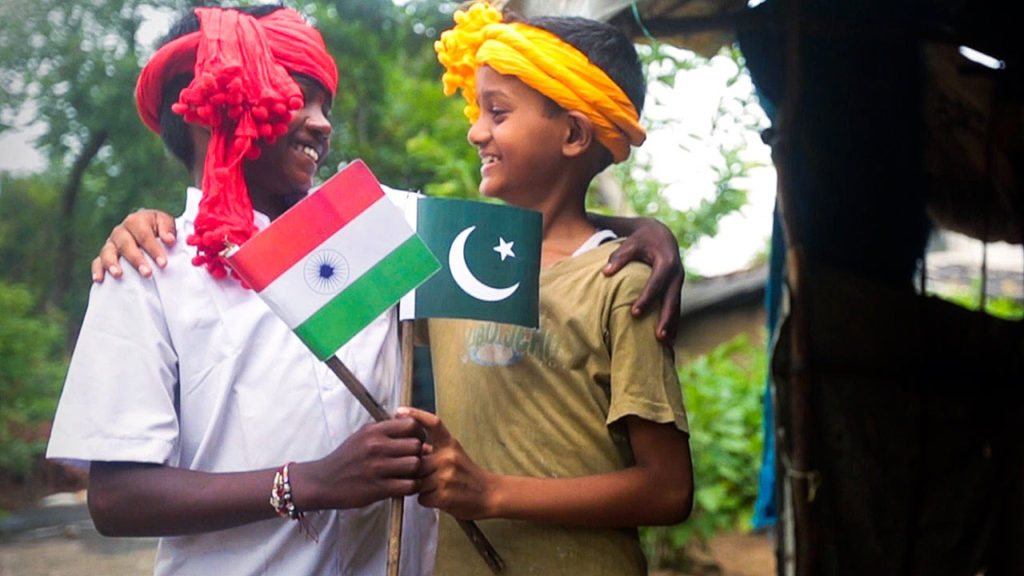
In September 1994, a few Indian and Pakistani social activists and professionals gathered together in Lahore, and came out with a statement stating their intention to set up a forum through which interaction could be established between the common people of the two countries. This led to the formation of the Pakistan-India-People’s – Forum -for- Peace-and-Democracy (PIPFPD). This article is a humble tribute to its adventurous journey all these years – in which I had been a traveller as a member of the Forum.
From 1995 onwards, the Forum continued to hold joint conventions once a year , alternately in cities in Pakistan and India, bringing together human rights activists, cultural workers, trade unionists, feminist rights groups, lawyers and teachers, businessmen – representing a wide spectrum of civil society from the two countries. It is necessary to demarcate the sphere of activities of this forum from that of what is known as the Track-2 diplomacy. The latter is marked by behind the scenes negotiations between Pakistani and Indian diplomats, and their civilian interlocutors – which led to the recent ceasefire at the LOC. Unlike the opacity of this semi-official process and its top-to-bottom approach, the PIPFPD had always adhered to a transparent campaign from the ground below, engaging the common people of both the countries as stake-holders in the efforts at peace, and overcoming the war hysteria and military conflicts that are engineered by the rulers of both the countries.
Trying to give articulation to the unheard voices of aspiration for friendship between the common people of the two countries, the PIPFD organized joint conventions bringing their representatives together – first in Lahore in November 11-12, 1995, then again in Kolkata in December 28-31, 1996, followed by a convention in Peshawar in November, 1998, and then again in Bangalore in April, 2000. At its Karachi convention in December, 2003, it declared: “ The Forum welcomes the recent confidence building measures announced by the two governments and demands their immediate implementation in full…”, and then added the important message: “…settle the Kashmir dispute respecting the aspirations of the people on both sides of LOC, withdrawal of armed forces…”
Echoing the same sentiments, some seven years later the PIPFPD, in a virtual statement on November 6, 2020, urged for the official talks between the two states to continue, giving the slogan: ” Guftagu bandh na ho” (The talks should not be stopped). At the same time, it asserted its determination to continue its efforts at the ground level to foster fraternity between the common people of the two states.
‘Yaado ka Chirag’ – a virtual get-together in memory of the departed souls On March 14, 2021, the PIPFPD got together its members from both Pakistan and India through a Zoom connection, and we were able to share our memories of two of its founder members, who are no longer with us – Dr. Mubashir Hasan of Pakistan, and Deendayalan from India . We also remembered the other guiding lights and members of PIPFPD who are no more – like Azma Jehangir and Kutti among others from Pakistan, and Nirmal Mukerji, Rajni Kothari, Smitu Kothari from India. The occasion was quite appropriately described as `Yaado ka Chirag’ (The Lamp of Memories). The `chirag’ (lamp) of people -to-people friendship between the two countries through a forum like PIPFPD, should be kept alight.
At the same time, the `guftagu’ (dialogue) at the official level for which the Forum urged in November, 2020 should also continue. It has led to a temporary cease fire along the LOC.
Talks between governments and talks between people
But there is a difference between the official `guftagu’ and the people’s `chirag.’ As pointed out earlier, full details of negotiations between military generals and foreign secretaries of India and Pakistan are never made public. Besides, such negotiations may lead to temporary cease fires, but they have always floundered soon on some other disputes (on the longstanding issue of Kashmir raised by Pakistan, and that of cross-border terrorism, a thorn in the flesh of India) – as evident from the past history of Indo-Pak relations .
The latest cease fire agreement between the two states along the LOC is a welcome development. People living on either side of the border , who suffer the most whenever cross border firings take place, are now heaving a sigh of relief. But how long will this relief last ? There can be a recurrence of the violence, since the basic sources of the dispute between the two states still remain unresolved. There is no fundamental or permanent change to the structure of the foreign policy of the two states that determines Indo-Pak relations. This is a policy of militarist confrontation – the only attitude that is shared in common by both the otherwise mutually hostile states !
Over the latest fragile cease fire agreement, there looms large the ominous fear of its derailment by the rabid communal lobbies and jingoist media in both Pakistan and India. They egg on the hawks among the bloated army top brass in the two countries to indulge in operations – both state supported and extra-state – so that they can keep themselves afloat with the tax payers’ money. We may witness therefore frequent incidents of violation of the cease fire agreement – from both the sides – in the coming months .
Future challenges
For civil society organizations like PIPFD, and other groups and individuals who strive for a settlement of the Indo-Pak dispute over Kashmir and peaceful co-existence between the people of the two states, the coming years will pose many challenges.
To start with, we should not disassociate the militarist confrontation between the two states from their domestic policies of suppression of democratic rights in their respective countries. We should remember that PIPFPD stands for `Peace’ and `Democracy’ – peace in mutual relations between India and Pakistan, and democracy within their domestic spheres.
On both these counts, the two states have failed – drawing criticism from international human rights organizations. In fact, both India and Pakistan follow the same model . Both resort to war games in their foreign policies through regular cross-border firings on the one hand, and repression of dissent in their domestic policies through draconian laws, and assaults on journalists and advocates of civil liberties on the other. For both the states, the war games are necessary to keep alive the threat from the `other,’ so that the official demand for `national security’ dumbs the voices of domestic dissent in their respective countries.
If the Indian state subjugates Kashmir by curbing its autonomy through enactment of new laws, the Pakistan state denies autonomy to the Kashmiris in its territory, as well as the people of Baluchistan, by imposing on them a militarist regime. If Pakistan uses its anti-blasphemy law to persecute atheists and rationalists, India is enacting anti-conversion laws to ban inter-faith marriages. Both India and Pakistan are fast resembling each other as mirror images.
Let me end therefore by quoting the sad verses by a Pakistani poet , Fahmida Riaz (1946-2018), who felt disappointed by India’s betrayal of her hopes . Addressing India, she wrote:
“Tum bilkul hum jaise nikle/ Ab tak kahan chhupe thay bhai/Woh moorakhta woh ghamad punn/ Jis mein hum ne sadi gunwai/ Aakhir punhchi dwar tuhare/ Are badhai, buhat badhai. “
(You turned out to be just like us. Where had you been hiding ? The silliness, the vapidity that consumed a century, has finally reached your doorstep. Congratulations, many congratulations !)
Sumanta Banerjee is a political commentator and writer, is the author of In The Wake of Naxalbari’ (1980 and 2008); The Parlour and the Streets: Elite and Popular Culture in Nineteenth Century Calcutta (1989) and ‘Memoirs of Roads: Calcutta from Colonial Urbanization to Global Modernization.’ (2016).
GET COUNTERCURRENTS DAILY NEWSLETTER STRAIGHT TO YOUR INBOX

